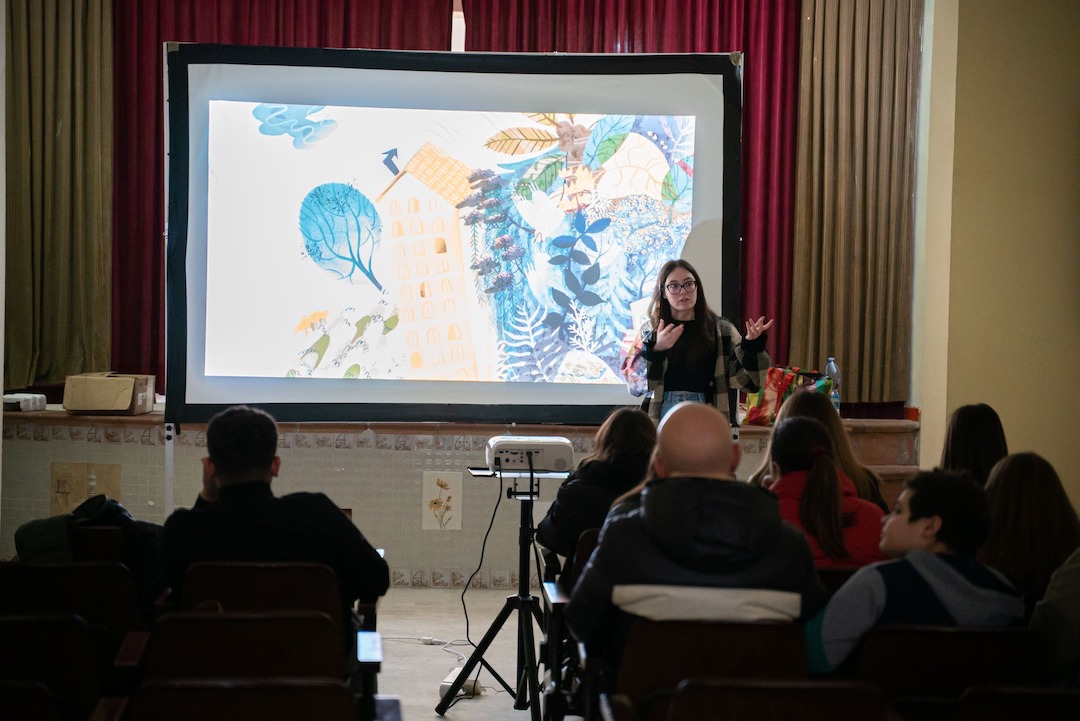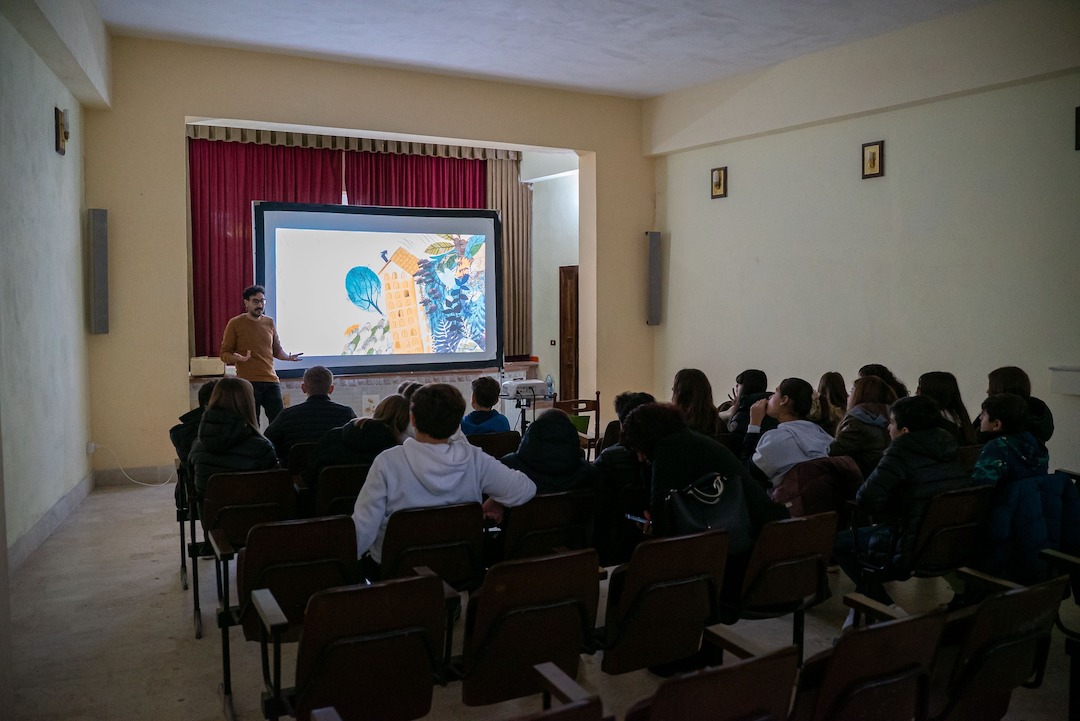“ECO-CINEMA – FILMS FOR THE ENVIRONMENT” is an educational project dedicated to 11-14 years old school students in Calabria, which uses cinema to transmit knowledge and sensitivity to environmental issues.
The project consists of an environmental-themed film program aimed at middle school students, enriched by meetings and debates.
The screenings include a selection of independent animated short and feature films dedicated to the environment in order to promote the values of environmental sustainability and territorial protection.
The films are approved by UNICEF Italia and combine quality with the ability to entertain young people.
They use the simple, innovative and high-impact language of contemporary animated cinema to convey important messages. In addition, information materials, including a handbook created by personalities committed to environmental issues, are provided, and educational workshops are held.
The project is funded by the Italian Ministry of Culture and the Ministry of Education through the ‘Cinema and Images for Schools‘ programme.





